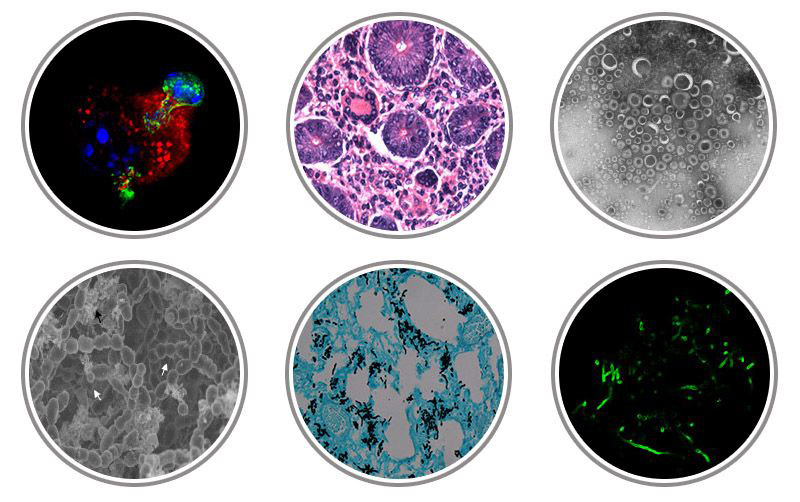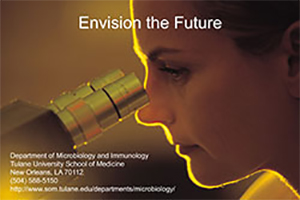
Microbiology, in its broadest sense, is the study of the smallest forms of life. As such, it is a fundamental science at the center of the biological stage and, by its scope, relates to many of the other basic sciences and to numerous clinical phenomena including infectious diseases, disorders of the immune system including immune deficiencies and autoimmune phenomenon, and neoplasia.Read More
Tracing its origins in the application of the scientific method to the study of the infectious diseases, microbiology now encompasses a broad range of subcellular and molecular phenomena that deal not only with the properties of infectious agents and the host's response to these agents, but also with subcellular aspects of molecular biology and genetics. Developments in these areas have contributed greatly to elucidation at a fundamental level of several problems directly relevant to infectious diseases, including the nature of viruses and their relationship to cancer and AIDS, mechanisms of immunity, and the actions of antibiotics.
Despite all of our advances in science and medicine, infectious diseases remain one of the leading causes of death in adults and children world-wide. Each year, infectious diseases kill more than 17 million people, including 9 million children. In addition to suffering and death, infectious diseases impose an enormous financial burden on society. Although antibiotics and vaccines have been effective at reducing the morbidity and mortality of some infectious diseases, new ones such as Crimean Congo Hemorrhagic Fever, Ebola Virus Disease, Marburg, Lassa Fever, MERS, SARS, Nipah and Rift valley fever are constantly emerging, while others such as malaria and tuberculosis reemerge in drug-resistant forms. Furthermore, we have an aging adult population with diminishing immune function, increased use of immunosuppressive agents for cancer, tissue transplantation, and autoimmune disease, and an upwardly spiraling cost of health care delivery that makes some existing vaccines unaffordable by the populations at greatest risk. In addition, we now face the possibility of bioterrorism with potentially devastating consequences and a limited number of preventative and therapeutic options.
The Department of Microbiology and Immunology has active research programs encompassing many areas of current research interest worldwide. Specific faculty interests and research programs range from studies of genetics of bacteria and modifications of bacterial and viral genomes, mechanisms of bacterial and viral pathogenesis, mechanisms of resistance to microbial infections, and development of vaccines and therapeutics. The collective expertise of the faculty is broad and provides students with the opportunity to learn from those who are working at the advancing edge of their fields. The research programs of the faculty are supported by grants from Federal sources such as the National Institutes of Health, Department of Defense, private foundations and industrial sources.
Our departmental Graduate Program in Biomedical Sciences emphasizes interdisciplinary research into the prevention of infectious diseases. The goals of our graduate program are (1) to provide a broad and sound education in the molecular biology and genetics of infectious disease and immunology and (2) to provide rigorous research training in an environment dedicated to advancing biomedical science. The students, postdoctoral fellows and faculty in Microbiology & Immunology form a cohesive group with its own identity, while taking full advantage of the tremendous breadth of expertise and knowledge contained within other departments and programs.
We invite you to join us on our journey to change the world.
